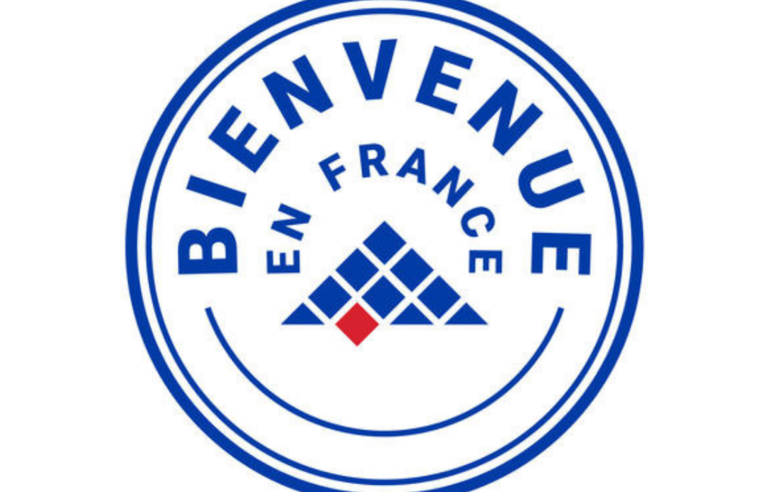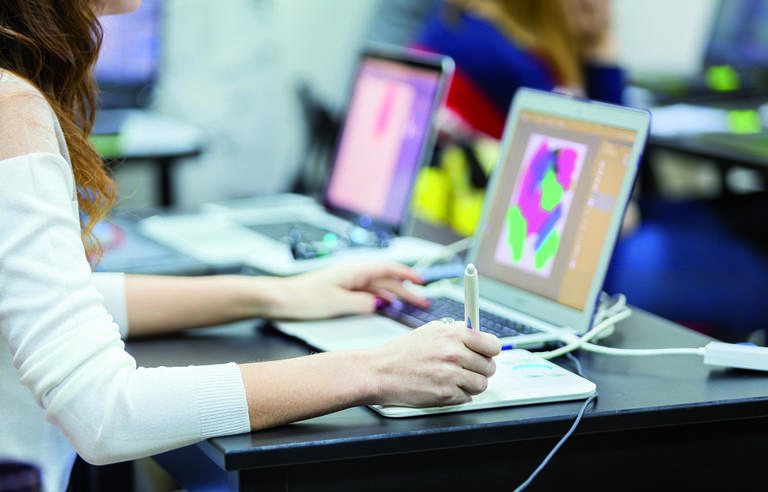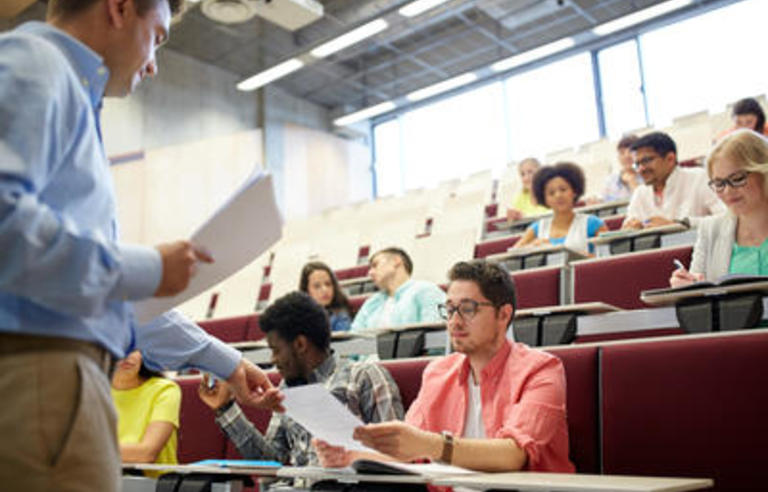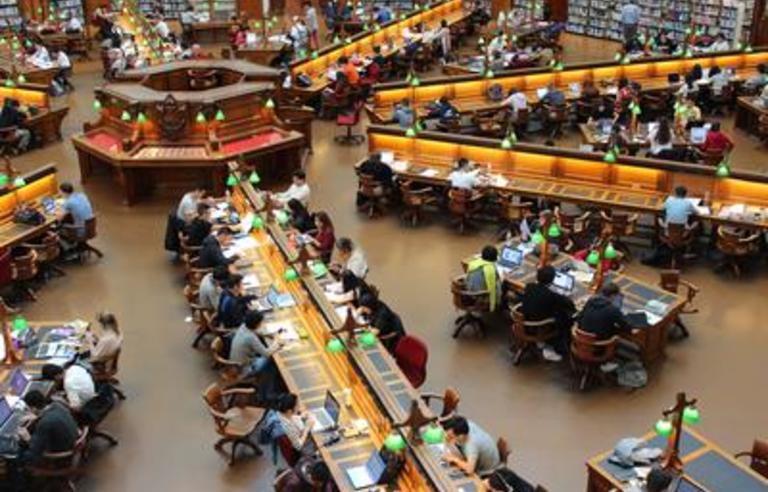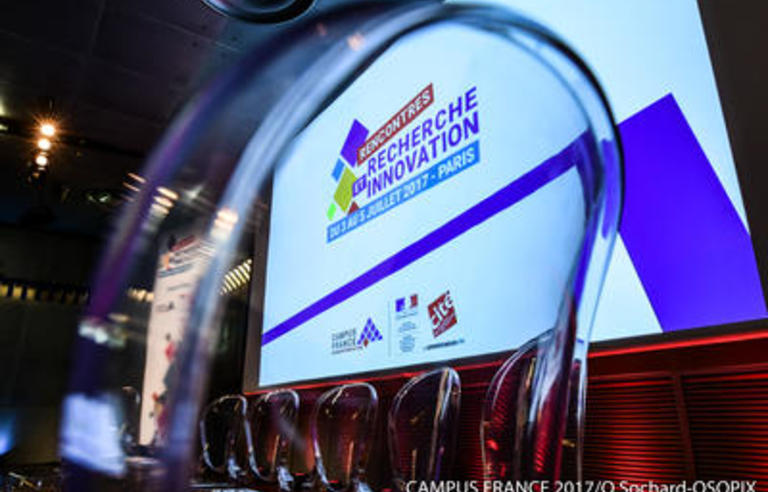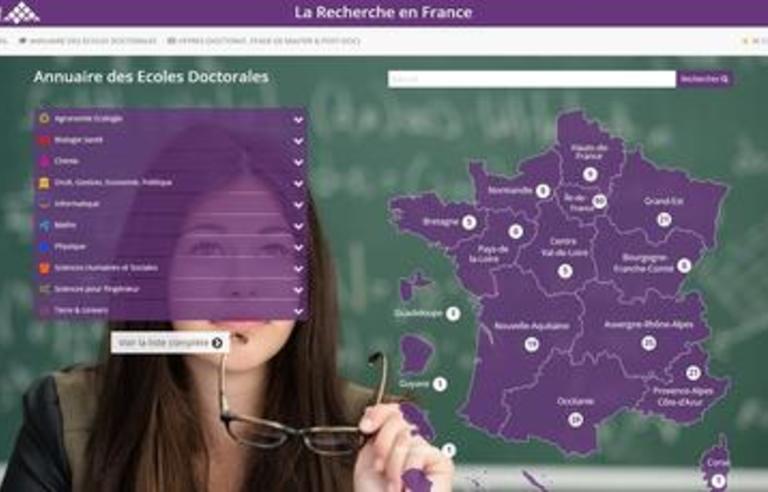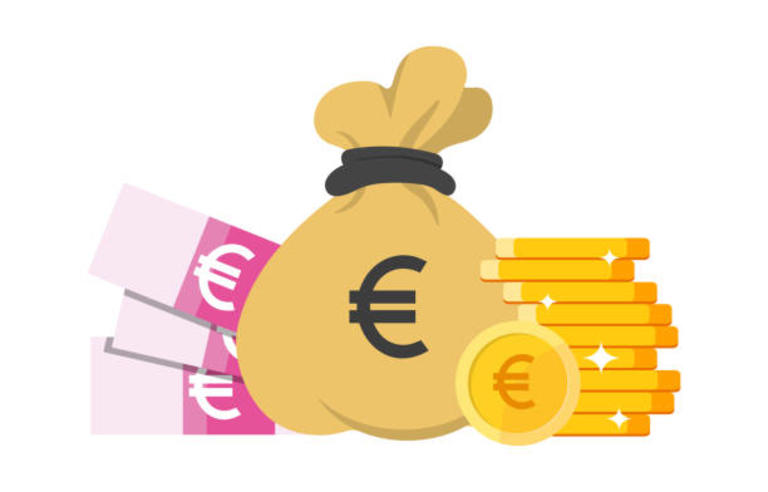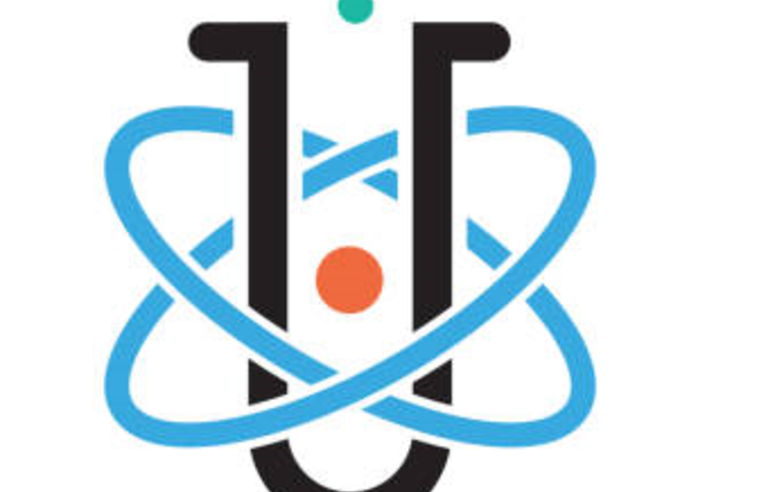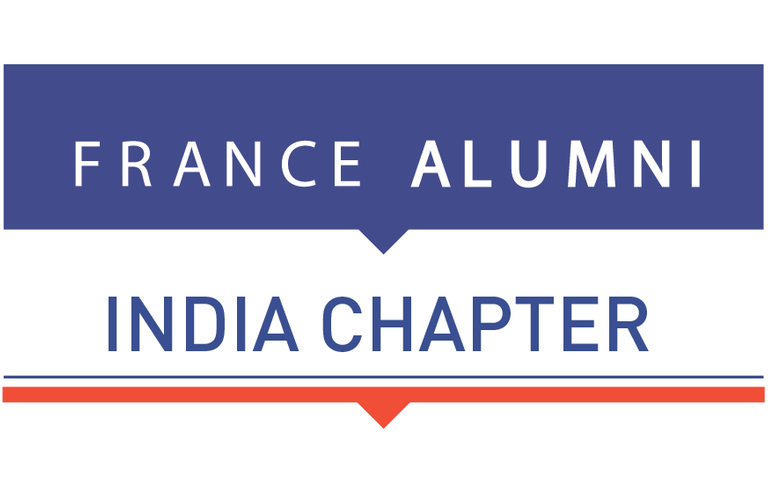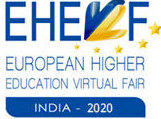Importance of Research in France
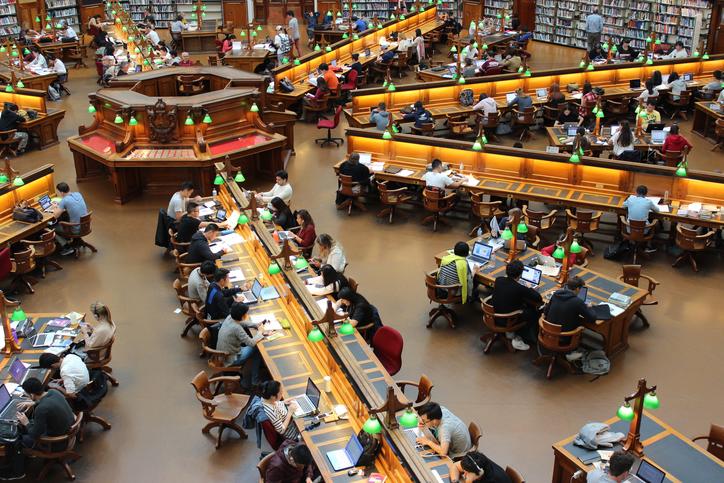
Each year, France spends almost 48 billion euros on research, equal to 2.24% of its GDP. This has enabled the country to achieve its objectives, particularly at an international level, and to attract talented researchers from around the world.
The Major Players involved in research in France
Including professors, researchers, engineers, technicians and support staff, more than 417,000 people are involved in research in France. They work in universities, Grandes Ecoles, public institutes and companies.
In France there are almost 267,000 research directors, professors, lecturers, research staff and researchers in companies. 26% of them are women and 40% of them work in the public sector. Their work is published in the best-known international scientific journals and have the fourth highest index of impact in the world.
Public Research Institutes
In France, research is conducted in universities and public research institutes including, to name a few, the CNRS (Centre National de la Recherche Scientifique- National Centre for Scientific Research), INRA (Institut National de la Recherche Agronomique - the National Institute of Agricultural Research) and INSERM (Institut National de la Santé et de la Recherche Médicale - National Institute of Health and Medical Research). These public institutes are very prestigious. The CNRS is, for example, the leading research institute in the world in terms of number of scientific publications.
Numerous International Distinctions
Hailed around the world, French research counts many Nobel Prize winners among its ranks. Among the most recent are Jean-Pierre Sauvage (Chemistry) in 2016, Patrick Modiano (Literature), Jean Tirole (Economics) in 2014 and Serge Haroche (Physics) in 2012. In total, 62 Nobel Prizes have been awarded to French people which ranks France fourth among countries.
In Mathematics, almost one third of all Fields medal recipients have come from French laboratories, including 10 from that of the École Normale Supérieure (ENS). France is second in the world in terms of number of medals, after the United States. The latest recipients to date are Ngo Bao Chau and Cédric Villani in 2010, and Artur Avila in 2014.
French Research is Open to the World
Research knows neither borders nor nationality: 41% of those enrolled in French Doctoral schools are foreigners and 54% of French scientific publications are the result of international collaboration. To ensure this mix in French research, the CNRS has recruited approximately 30% of its researchers from abroad each year since 2010. Like the CNRS, many French research centres regularly open specific positions to foreigners and invite people from around the world to teach in France.
Additionally, many French successes have come from international research: the Vietnamese mathematician Ngo Bao Chau, who was awarded the Fields medal in 2010 (along with Cédric Villani), obtained his Master’s and Doctorate in France.
On June 8th, 2017, the President of France, Emmanuel Macron, issued an appeal to climate researchers around the world to come to France. To find out more about this appeal and to register, visit the Make Our Planet Great Again website.
The Guide - Choose France for your Research Project
How Public Research is Conducted in France?
In France, researchers can conduct their research in different establishments: public research institutes such as the CNRS, universities, the Grandes Ecoles and the structures of excellence.
In research institutes, researchers work full time and do almost no teaching. On the other hand, in establishments such as the universities, researchers have the professor-researcher status and give classes at the same time as they do research.
In universities, research is conducted in mixed research units comprised of professor-researchers from the university and researchers from research institutes.
*To find out more about research in France, download our guide "Research in France".
Research Labs
Research laboratories are affiliated with universities or research institutes, and provide researchers with a framework within which to work. There are different directories to help you find research laboratories that may be of interest to you.
Directories of Research Laboratories
The research laboratories employ professors-researchers from universities or Grandes Ecoles. There are also researchers from major public research institutes such as the CNRS, INRA, INRIA or INSERM. Several directories enable you to find the French research laboratories that correspond to your field of studies:
-
le répertoire national des structures de recherche (the national directory of research structures) (only in French)
-
l’annuaire des laboratoires de recherche du CNRS (the directory of CNRS research laboratories) (only in French)
-
le répertoire scanR (the scanR directory) (for public and private research laboratories).
Directory of Doctoral Schools
You can also use the directory of Doctoral schools on the Campus France site for the contact information of a specific research laboratory. Start by identifying the Doctoral school that corresponds to your field. The "Laboratories" tab then lets you scroll through the list of research laboratories affiliated with it.
Mapping French Research
Research is conducted everywhere in France. It is also frequently conducted outside of the country, at more than 250 locations around the world.
French Research in France
A major portion of French research is performed in Paris and the surroundings. The Paris region is also the leading European region for research and innovation. Nonetheless, the other regions in France are also home to a large number of researchers and research laboratories.
Universities, Initiatives d’Excellence (IDEX- excellence Initiatives), laboratoires d’excellence (LABEX - Excellence Laboratories), competitiveness clusters, etc.
French Research Abroad
French research has been conducted abroad since the 19th century, with the creation of the Instituts Français de Recherche à l’Etranger (IFRE - French Institutes of Research Abroad) and French international schools. Since then, this international presence has never stopped developing. Today, there are 27 IFRE and five French schools located abroad.
Conducted at more than 250 locations outside France, French research is a major player in international research. The Pasteur Institute, in particular, is at the heart of a network of 33 institutes in 26 countries. The CNRS has 34 Unités Mixtes Internationales (UMI - International Mixed Units) administered in partnership with local research institutes. The Pasteur Institute, CNRS, INRIA, IRD, CIRAD, INRA, INSERM, IFRE and French schools.
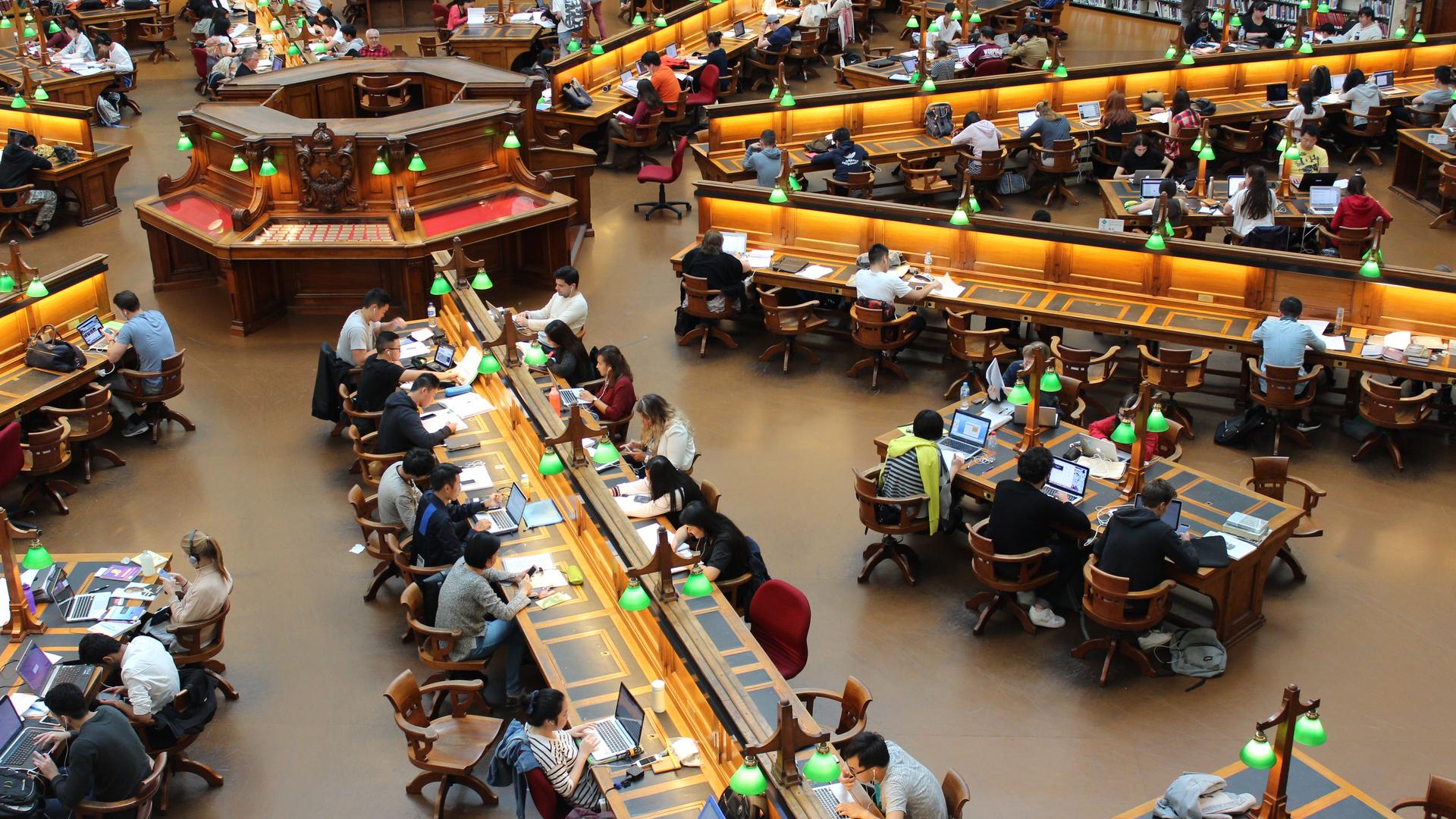
Outstanding French Researchers
The excellence of French research can be seen not only in the reputation of its universities and institutes, but also in its researchers. For decades, French researchers have been recognised around the world and awarded for their work.
A few French leading researchers:
Trained in the French Grandes Ecoles and universities, many French researchers, in all academic fields, have been recognised around the world for their work. Regardless of your area of expertise, whether it is in the Humanities or the "exact" Sciences, you will find a French reference in your reading list.
A few of the profiles presented here may inspire you. This is not, of course, an exhaustive list. To rub shoulders with many more, come do your doctorate in France.
1. Louis Pasteur (1822-1895), Physicist and Chemist
A chemist and physicist by training, Louis Pasteur was behind the 19th century's biggest advances in chemistry and medicine, in particular in the fight against infectious diseases. Considered the inventor of bacteriology and microbiology, he patented pasteurisation in 1865 and developed the rabies vaccine in 1885. The Pasteur Institute that he directed until his death in 1895 is today considered one of the world's leading research centres for studying micro-organisms and infectious diseases.
2. Marie Curie (1867-1934), Physicist and Chemist
Marie Sklodowska-Curie was the first woman to be awarded a Nobel Prize, and the only person to receive a Nobel in two different scientific fields. In 1903, she and her husband were awarded the Nobel Prize in Physics for their work on radiation, and in 1911, her discovery of radium and polonium earned her the Nobel Prize in Chemistry. The Paris university specialising in science and medicine today bears her and her husband's names: Université Pierre et Marie Curie (UPMC). Her name has also been given to the biggest European researcher exchange programme.
3. Hélène Metzger (1889-1944), Epistemologist
A crystallographer by training, Hélène Metzger devoted herself to studying the history of science. She published numerous articles and monographs in epistemology journals between 1920 and 1940. She spent a considerable amount of time working on the history of French chemistry, and placed scientists and the context of their research at the heart of the history of science. She was an administrator of the International Committee of Historical Sciences, but did not achieve recognition in the French university system, and so remained an amateur. Her arrest by the Germans in 1944 interrupted her career; she would not return from Auschwitz.
4. Claude Lévi-Strauss (1908-2009), Ethnologist
A renowned anthropologist and ethnologist, Claude Lévi-Strauss revolutionised anthropology by inventing the concept of structuralism, which had a profound influence on contemporary thought, not just in ethnology, but also in sociology, philosophy, history and literature. Recipient of the CNRS gold medal in 1967, he also received honorary doctorates from a number of universities around the world and was a foreign member of the National Academy of Sciences of the United States of America. One of his most widely read works, Tristes Tropiques, published in 1955, is a mixture of a travelogue and philosophical reflections.
5. Jules Hoffman (1941-), Biologist
Katia Krafft studied physics and geochemistry at the University of Strasbourg, and quickly turned to volcanology. She and her husband, Maurice Krafft, also a volcanologist, travelled around the world. They were nicknamed the volcano devils by their peers as they hopped from the slopes of one erupting volcano to another, never missing one – they filmed them and took photographs, recording 175 eruptions in 25 years. Katia Krafft died alongside her husband, swept away by a pyroclastic flow on Mount Unzen in Japan in 1991. Their work is still referenced today in France and abroad.
6. Jean-Pierre Sauvage (1944-), Chemist
A specialist in the coordination chemistry, Jean-Pierre Sauvage worked at the CNRS from 1971 to 2014. He wrote his doctorate under the supervision of Jean-Marie Lehn, who won the Nobel Prize in Chemistry in 1987, and Sauvage was himself the recipient of the Nobel in 2016 for his work on the design and synthesis of molecular machines. He is a permanent member of the Academy of Sciences and professor at the University of Strasbourg.
7. Monique Pinçon-Charlot (1946-), Sociologist
Monique Pinçon-Charlot is a research director at the CNRS and attached to the Institute of Research into Contemporary Societies (IRESCO) at the University of Paris-VIII. She generally works with Michel Pinçon, her husband, who is also a sociologist and researcher at the CNRS. Most of their work is the result of shared effort. Their speciality is the study of elite and upper social classes, and they study, among other things, homogamy, insularity and social norms. She retired in 2007, but is continuing her work. She is a member of the French Communist Party.
8. Françoise Barré-Sinoussi (1947-), Virologist
A specialist in virology, Françoise Barré-Sinoussi worked at the Pasteur Institute and the American National Science Foundation before joining INSERM in 1975. As part of Luc Montagnier's team, in 1983 she discovered the AIDS virus (HIV-1), and was awarded the Nobel Prize in Medicine in 2008 in recognition. At the Pasteur Institute, she then directed first the retrovirus biology laboratory, then the Regulation of Retroviral Infections Division. In 2008, she oriented her research towards the congenital regulation of infections by HIV. In 2012, she is president of the International AIDS Society, the leading independent international society of researchers and doctors against HIV/AIDS and in November 2017, she became President of the Sidaction, an association dedicated to the fight againt cancer.
9. Bruno Latour (1947-), Anthropologist
A philosopher and anthropologist, Bruno Latour studies how research functions and researchers’ daily lives. He is considered a sociologist of science and has earned a glittering reputation, especially in the English-speaking world. He conducts his research and teaches in engineering schools in France and abroad. Since 2006, he has been a professor at the Institute of Political Studies in Paris, where he has created a number of programmes: the medialab, the SPEAP (Sciences-Po Programme d'Expérimentation en arts et politique - Political Science Experimental Programme in Arts and Politics) and the FORRCAST, a programme for teaching by mapping controversies.
10. Nonna Mayer (1948-), Political Scientist
A Doctor of Political Science, Nonna Mayer is a research director at the CNRS, attached to the Centre for Political Science Research (CEVIPOF). She teaches at the Institute of Political Studies in Paris. She has extensively studied electoral sociology, in particular on the extreme right, and co-directs a work group on the French National Front with Pascal Perrineau. She also works on militancy, racism and antisemitism.
11. Catherine Wihtol de Wenden (1950-), Political Scientist
A research director at the CNRS (CERI) and with a PhD in political science, she is a specialist in international migration. She has conducted numerous field studies and directed different comparative research studies, especially European. Catherine Wihtol de Wenden is a consultant for the OECD, the Council of Europe and the European Commission, in addition to being an external expert for the United Nations High Commission for Refugees (UNHCR).
12. Catherine Wihtol de Wenden (1950-), Political Scientist
A research director at the CNRS (CERI) and with a PhD in political science, she is a specialist in international migration. She has conducted numerous field studies and directed different comparative research studies, especially European. Catherine Wihtol de Wenden is a consultant for the OECD, the Council of Europe and the European Commission, in addition to being an external expert for the United Nations High Commission for Refugees (UNHCR).
13. Cédric Villani (1973-), Mathematician
Cédric Villani is mainly interested in kinetic theory and optimal transport and its applications. He graduated from the École Normale Supérieure (ENS) and wrote his thesis on the mathematical theory of Boltzmann's equation. He is a Director of the Henri Poincaré Institute and Professor at the University Claude Bernard in Lyon. He was awarded the Fields medal in 2010. He has been a representative in the National Assembly for the movement "La République En Marche!" since the legislative elections in June 2017.
14. Artur Avila (1979-), Mathematician
Artur Avila is a Franco-Brazilian mathematician working primarily on dynamic systems in spectral theory. He did his post-doctorate in France in 2001 at the Collège de France. In 2008, at the age of 29, he became the youngest director of research at the CNRS. He was awarded the Fields medal in 2014.
Overview of French Research (By Field)
French research knows no frontiers and covers all areas of knowledge. The Research Profiles published by Campus France give you detailed information about each field.
World-renowned multi-disciplinary research
France is ranked 6th in the world in terms of number of scientific publications by French laboratories, with half the result of international collaboration. Every field is represented in France, with a strong specialty in mathematics nonetheless.
The Campus France Research Profiles
For a complete overview of French research, check the Research Profiles published by Campus France. They contain a lot of information about the history, major discoveries and main research laboratories in a number of areas of French research.
-
Agronomy
-
Archaeology
-
Biology
-
Biotechnology
-
Chemistry
-
Climatology
-
Renewable energy
-
Environmental sciences
-
Mathematics
-
Musicology
-
Nanoscience
-
Neurosciences
-
Physics
-
Information and communication sciences
-
Sociology
Excellence of French Research in Videos
If you can't attend classes with the best French researchers and scientists, their classes will come to you!
Classes of the Collège de France
The Collège de France was created in the 16th century by king Francis I to teach disciplines that were forbidden at the university. Today, the Collège de France is a unique institution in French research and a symbol of excellence. Professors from the Collège de France are renowned scientists and researchers. They give classes in mathematics and numerical sciences, physics and chemistry, life science, social sciences and history of literature.
The Collège de France does not issue any degree; classes are free, accessible to all, with no need for registration. They are online on the Collège de France website or on its YouTube channel.
-
Check out the "Courts du Collège de France" or the presentation in a handful of minutes of a future class at the Collège de France.
-
Explore the complete classes of professors from the Collège de France (2017-2018).
-
The Ernest,15 minutes to change the world
The association The Ernest was created by the Ecole Normale Supérieure (rue d'Ulm). Its goal is to ensure the broadcasting of scientific conferences in an innovative and short format. Videos stage a specialist tackling a particular subject of the scientific, cultural or intellectual field, explaining all stakes in 15 minutes.










